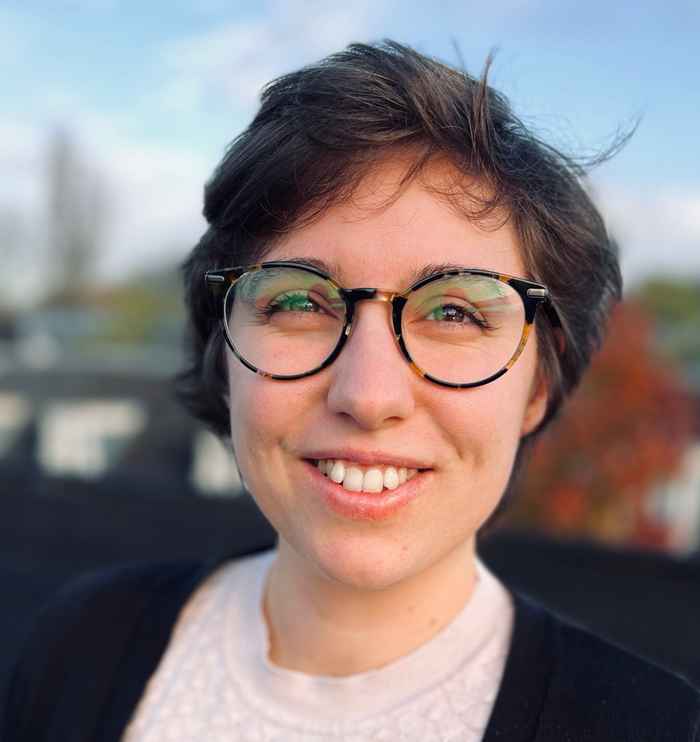Veni laureate Bettina Baumgartner joins Van ‘t Hoff Institute for Molecular Sciences
Improving chemistry by exploiting confinement in porous materials
6 February 2024
In her research, Baumgartner focuses on the rational synthesis of porous materials for photo- and electrochemical reactions. With this she aims to provide nanometer-sized, predefined ‘molecular meeting places’. The idea is that this ‘nano-confinement’ will reduce interaction pathlengths, thus enhancing the conversion rate of photoreactions that depend on short-lived excited species. Baumgartner plans, amongst others, to apply metal-organic frameworks (MOFs) for the conversion CO2 and CH4 into basic chemicals using only sunlight. She wants to translate concepts that help to convert molecules in biological systems (such as photosynthesis) to MOFs.
At the right institute
Baumgartner will study the effect of confinement on activity and selectivity using advanced in-situ and operando spectroscopy, cooperating with researchers in the HIMS groups for Molecular Photonics, Computational Chemistry, and Analytical Chemistry. She joined HIMS at the beginning of January and says she has really enjoyed her first month: ‘I am convinced this is the right institute for me! There is so much overlap with the different research groups that I can’t wait to further explore. I also feel that the new approach on infrared spectroscopy that I bring to the institute will benefit many different disciplines.’
Baumgartner is eager to make use of the excellent HIMS spectroscopy infrastructure for molecular photonics and to team up with the computational chemists to better understand the behaviour of molecules confined in nanometre sized pores. And she expects to be of help to researchers in analytical chemistry so that they can better understand the interactions of their porous separation materials and analytes.

Bettina Baumgartner obtained her MSc in Chemistry (2016) from TU Wien (Vienna, Austria) working on green techniques to synthesize high-performance polymers and organic dyes. This led to a patent, which was awarded “Best Patent” by the Austrian patent office and is used by the spin-off company UGP materials. She then obtained her PhD (2019) with Prof. Bernhard Lendl at the same university, specializing in in situ infrared spectroscopy. In her thesis, she demonstrated that mesoporous oxide films greatly enhance performance (sensitivity and selectivity) in gas and liquid phase sensing, and revealed the effect of confinement on the structure of adsorbed species. She also elucidated photocatalytic reactions using in situ IR spectroscopy. Both her PhD and Master theses were awarded the “Best Thesis” prize from the Austrian Chemical Society. Baumgartner performed postdoctoral research at TU Wien (2020), Osaka Prefecture University, Japan (2020-2021, JSPS Fellowship) and Utrecht University (2021-2023, FWF Schrödinger fellowship). In August 2023 she was awarded a Veni grant by the Dutch Research Council NWO. This individual science grant is part of the NWO Talent Programme, and aims to support researchers who have recently obtained their PhDs to further develop their own research ideas over the next three years.
See also
- Research group Homogeneous, Supramolecular and Bio-inspired Catalysis
- Research Priority Area Sustainable Chemistry